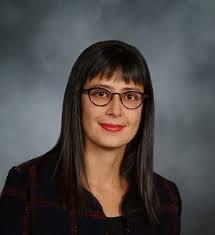News and Congratulations

Congratulations to Anais Rameau, MD, KL2 Scholar, on publishing about a novel and personalized voice restoration device for patients with laryngectomy. In her publication she uses surface electromyographic (sEMG) signals in the articulatory muscles on patients mouthing words silently. Through the use of the sEMG signals they were able to input that data for automatic speech recognition with machine learning. In this pilot study they were able to conclude that through further study of the sEMG approach future studies could allow patients to regain their speech through silent articulations being transmitted into a synthesized voice in a portable machine.
Dr. Rameau’s research as a CTSC K Scholar is on bedside aspiration screening using artificial neural networks in the recognition of the “wet” voice. The screening research’s goal is to establish a universal voice screening to assess aspiration risk amongst patients with dysphagia. Her publication shows that she is well on her way to creating a voice for the voiceless.
Not only is Dr. Rameau diligently working on her research, she has also found the time to participate in the CTSC Health Hackathon. In 2018 Dr. Rameau won the Grand Prize Award for an innovative project on personalized speech recognition through silent articulation. The aim of the project was to give those who are voiceless a voice through the use of “subvocal speech”. “It's hard for these patients to project their voices and be heard. And because the speech is abnormal, it's further stigmatizing,” said Dr. Rameau, an assistant professor of otolaryngology with expertise in behavioral communication sciences at Weill Cornell Medicine and a laryngologist at the Sean Parker Institute for the Voice.
She was awarded the CTSC KL2 Career Development Award in 2018 where she has been able to expand her research in the field of laryngology. Her primary mentor is Holger Klinck, PhD, Director of the Bioacoustics Research Program at Cornell University, Ithaca. Her secondary mentor is Fei Wang, PhD, Assistant Professor of Health Policy and Research at Weill Cornell Medicine.
The CTSC KL2 Career Development Core Program supports junior faculty and senior residents and fellows by providing salary support, protected time, advanced degree training, and practical skills necessary to conduct interdisciplinary Clinical Translational Investigation within a team research environment.
The 2020 Health Hackathon aims to foster innovative multidisciplinary team science using artificial intelligence and machine learning. Find out more on how to sign up here.

